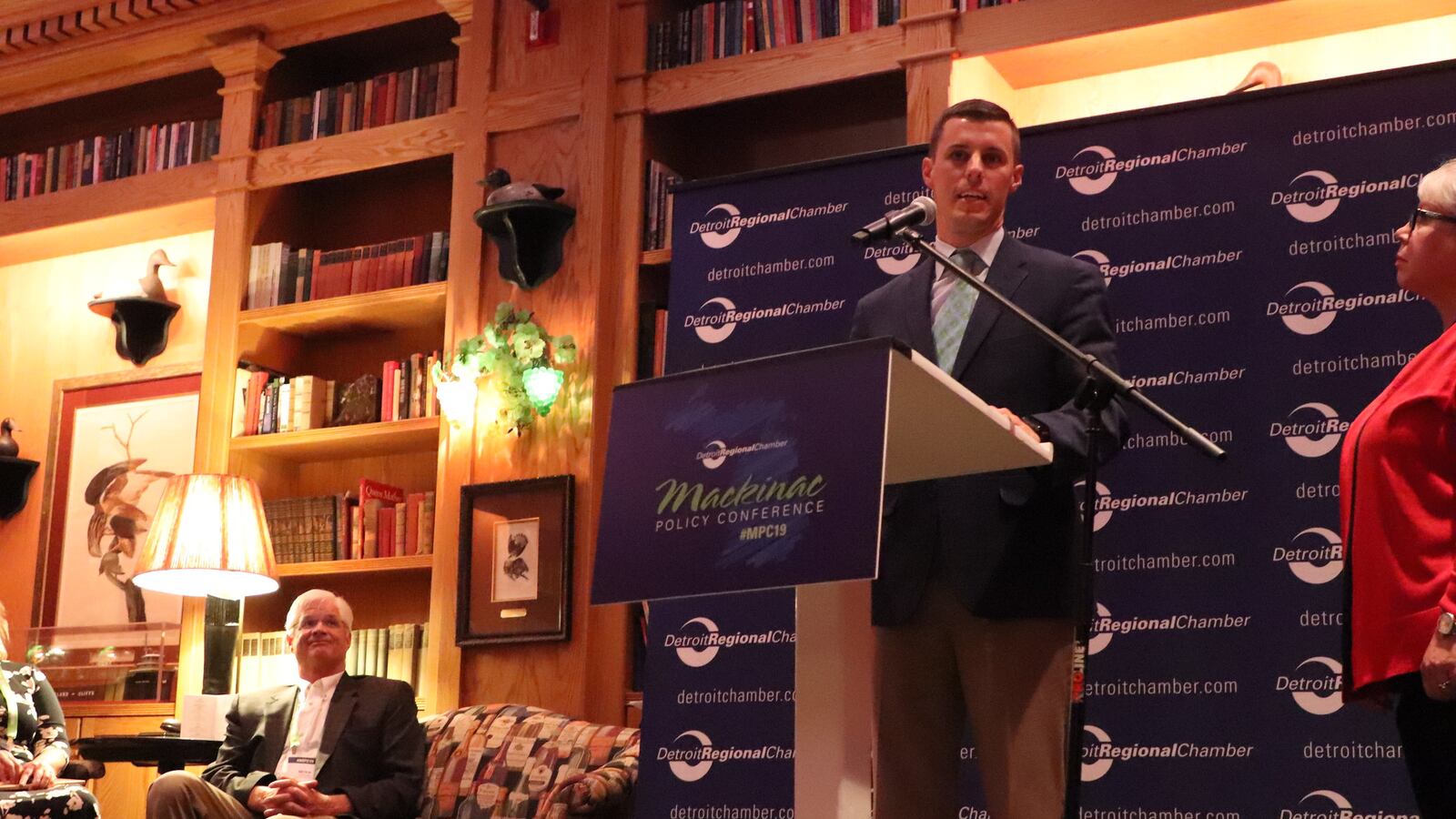An ambitious effort to reverse Michigan’s two-decade educational decline was pitched to Michigan’s policy elite this week with a show of broad-based political clout.
The four top lawmakers of Michigan’s legislature, Republicans and Democrats, spoke at a press conference touting the initiative, called Launch Michigan. To education experts, their joint presence was a sign that the group will be able to change Michigan’s education law where others have failed.
“I’ve been doing this for 20 years, and this is the first time I’ve seen education and business sit down at the same table,” said Don Wotruba, president of the Michigan Association of School boards.
The public will have to wait another six months to see what policies Launch Michigan will actually recommend.
“It’s cooking, but it’s not ready,” said Bill Miller, executive director of the Michigan Association of Intermediate School Administrators, who is part of the initiative.
For more than a year, 19 people have met at least once a month, traveling to Lansing from Detroit, Traverse City, and Grand Rapids to discuss improving Michigan’s schools. They represent groups that have been starkly at odds over the last two decades as Michigan’s academic performance has stagnated: major business associations; the state’s two largest teachers unions; and trade associations representing charter schools, principals, and school boards.
The group plans to present policy recommendations in December. Some leaders of the initiative had hoped to weigh in with their final policy recommendations by this week — in time to share their findings at the Mackinac Policy Conference, an annual gathering of CEOs, politicians, and policymakers on an island in northern Michigan. But it took longer than expected to resolve ideological differences over school accountability and attracting teachers into the profession.
Launch Michigan has plenty of predecessors — groups whose reports didn’t gain traction with lawmakers. The list includes many of Michigan’s think tanks and advocacy groups: the Upjohn Institute, EdTrust-Midwest, and Business Leaders for Michigan, and a commission appointed by former Gov. Rick Snyder.
To understand why some observers believe Launch is different, consider: It has support from both labor leaders and top businesspeople.
“I think we’re on the precipice of something very big,” said Doug Rothwell, president of Business Leaders for Michigan and a chair of the initiative.
Fueling the initiative is a growing sense that Michigan’s education system is in deep trouble. The depth of the problem was captured by the headline of one of the conference’s marquee sessions: “The Education Crisis.”
Michigan students have been falling behind for years. In 1992, only eight states ranked higher than Michigan in fourth-grade reading on a national exam. A quarter century later, 27 states did better than Michigan.
While low test scores are closely linked to poverty, the numbers don’t look good for Michigan kids from high-income families.
“It’s not just an urban and rural issue,” said Bill Pink, president of Grand Rapids Community College.
In a sign of the group’s political reach, Lee Chatfield, the Republican speaker of the House, said that a prominent businesswoman made sure he attended the event.
“Patti Poppe was very persistent in ensuring that this was on my schedule,” he told an audience at the conference.
Poppe isn’t an educator — she’s the CEO of Consumers Energy, the largest utility in Michigan. Support from people like her is fueling optimism among education leaders about the plan.
Launch leaders have been unabashed about their ultimate goal: changing the law.
A few hours after Gov. Gretchen Whitmer signed an auto insurance bill on the porch of the Mackinac Hotel, Tonya Allen, president of the Skillman Foundation, joked that an education bill is on the horizon.
“In the next couple of years, we need to be on that porch, together, signing” an education bill, she said.
(The Skillman Foundation funds Chalkbeat.)
In the meantime, it seems clear that reform isn’t coming this year. While many educators have embraced Whitmer’s proposed education budget as a step in the right direction, they also acknowledge that it falls far short of the total funding overhaul some experts have called for.
Pink warned attendees of the conference that real education reform would be a long haul.
“If you think you can leave the island and all of a sudden it’s going to be different and better — you’re wrong,” he said.

